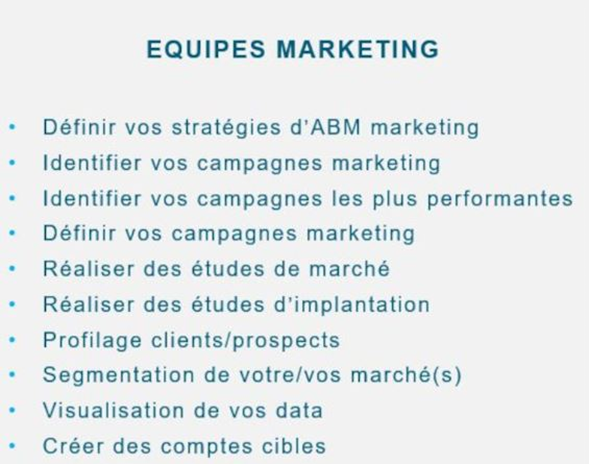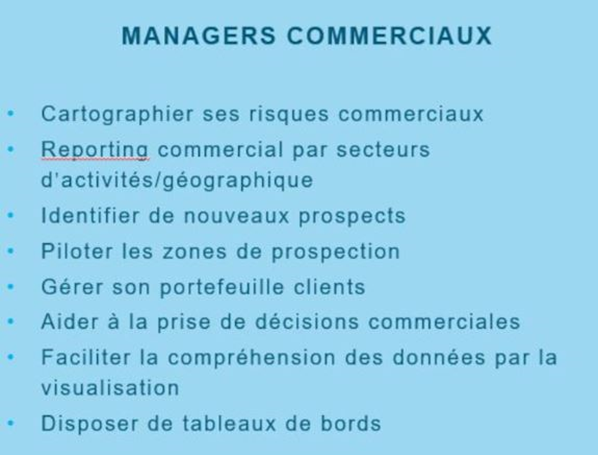Did you say Business Intelligence, as in BI?
Business Intelligence (BI) is the ability to use technology to transform raw data into decision-making tools. Most often, this takes the form of interactive dashboards, reports and customized data visualization.
Currently, only 23% of executives with a BI tool in their company believe that these tools are used to analyze data to improve products and services, and 21% to improve sales.
In the face of such skepticism or lack of operational vision, it's important to clarify the benefits of BI for marketing and sales professionals.
Exponential global growth!
First of all, it's worth noting that Business Intelligence (BI) technologies will represent a global market of $33 billion by 2024. Projections to 2029 call for sales of over $60 billion, representing annual growth of over 10%.
This craze can be explained by the fact that, on average, companies worldwide use 3.9 Business Intelligence solutions. Indeed, the majority of companies are obliged to use several BI solutions to achieve their overall objectives.
Why a Business Intelligence tool for marketing and sales professionals?
With technological evolutions, both Cloud and Artificial Intelligence integration, and due to an increasingly heterogeneous amount of data, marketing and sales professionals are increasingly demanding solutions that will adapt as much as possible to their particular needs and contexts.
The objectives are to establish corporate strategies to make data as accessible as possible to all departments, and to disseminate a data culture.
The benefits of BI for marketing
Business Intelligence is a real asset for marketing teams, enabling them to succeed in their missions. It enables marketing teams to bring together often heterogeneous data (behavioral, intentional, purchasing, etc.) to gain a better understanding of prospects and customers. Segmentation will be perfected by the integration of new variables, and market research by a wider choice of analysis axes, or by layers of geomarketing. Indicators or KPIs will be more precise, developed specifically to measure the effectiveness of communication campaigns, monitor the competition, anticipate customer demand and analyze e-commerce in real time in order to adapt their strategy.

The benefits of Business Intelligence for the retail sector
In sales departments, it's vital to know your customers and use their data wisely, to define appointment optimization paths through geomarketing, and to know and identify your prospects. What's more, with e-commerce or physical sales outlets, sales teams and managers often find themselves with multi-source data that can be complicated to aggregate.
BI tools enable detailed analysis of sales by product, by region or by acquisition and distribution channels, which in turn enables more accurate sales forecasts and optimized sales approaches.

Shared benefits for marketing and sales
Everyone can contribute to the decision-making chain by sharing information that is validated and known to all, thanks to these technologies. They will enable marketing and sales to work together on a common front, to make better decisions, establish KPIs, know the return on investment (ROI) of actions, achieve common strategic objectives and monitor actions collaboratively. BI is the essential tool for turning data into a genuine business performance lever and differentiating your company from the competition.



